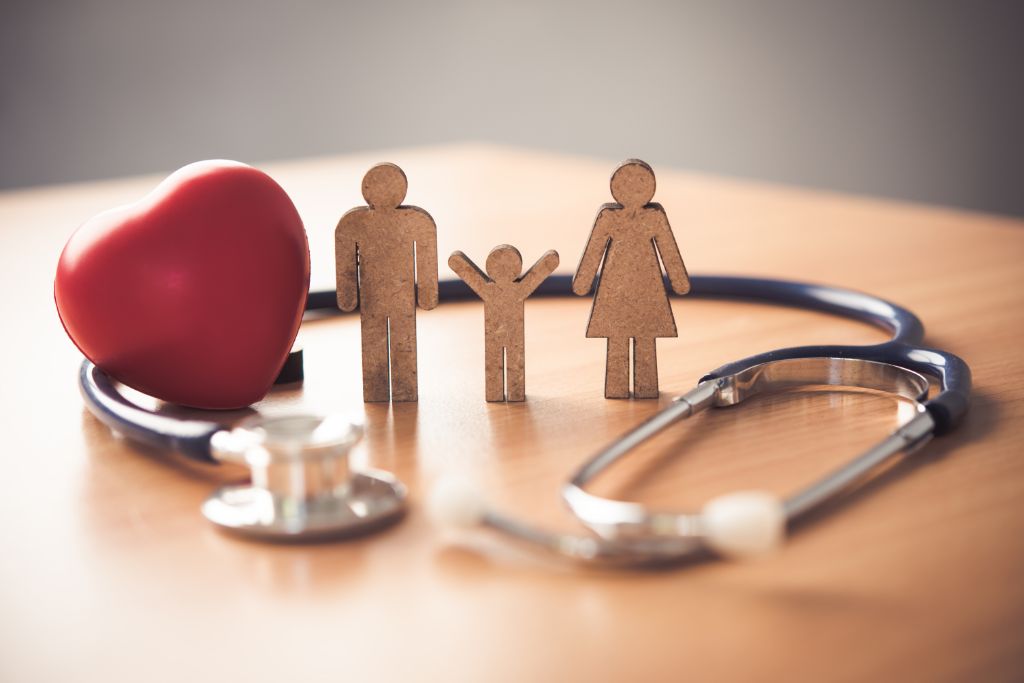
- Genetic Alliance: Founded in 1986 as the Alliance for Genetic Support Groups, Genetic Alliance has become the world’s leading nonprofit health advocacy organization committed to transforming health through genetics. Their open network connects members of parent and family groups, community organizations, disease-specific advocacy organizations, professional societies, educational institutions, corporations, and government agencies to create novel partnerships.
- Referral to support and partnering with Family-led Organizations: A Reference Guide: National Genetics Education and Support Center (The Family Center): The Family Center works to increase access to genetic services by promoting and strengthening family engagement in the genetic healthcare delivery system. Families are at the center of what they do. They partner with them, so that family experiences are reflected in their work. Committed to supporting them as they navigate the genetics healthcare delivery system, The Family Center ensures that families are getting actionable, digestible information to feel empowered in their healthcare decisions.
- New York-Mid Atlantic Consortium for Genetics and Newborn Screening Services (NYMAC) (familyvoices.org): Family Voices is funded by the Maternal and Child Health Bureau of HRSA, and works to increase family engagement in all levels of healthcare. The goal of the program is to strengthen healthcare systems serving children and youth with special health care needs (CYSHCN). Family Voices offers tools such as:
- Find your state’s Family Voices Organization here: Affiliate Archive – Family Voices
- A Resources page that includes webinars, tip sheets, and best practices. It is searchable by language, source, type of resource, and topic. https://familyvoices.org/lfpp/resources-ncfpp/?sq&f%5B0%5D=national-center-for-family-professional-partnerships
- A Newsletter with updates on national policies that affect children and youth with special healthcare needs, as well as resources and other updates in the field. It is available for download on the Family Voices website, or via email subscription. https://familyvoices.org/washingtonupdate/
- Parent to Parent USA (P2P USA) is a national nonprofit organization that promotes excellence in P2P programs across the nation. Since the 1970s, Parent to Parent programs have been providing emotional and informational support to families. We know there is strength and power in connecting parents of children with disabilities or special health care needs, for a wide range of conversations that will be helpful throughout their parenting experiences. https://www.p2pusa.org
- Find your state’s Parent to Parent Organization here: For Parents (p2pusa.org)
- Center for Parent Information and Resources | Your Central Hub for Parent Centers Serving Families of Children With Disabilities (parentcenterhub.org) The Center for Parent Information and Resources is a central hub with information about Parent Training and Information Centers (PTIs) and Community Parent Resource Centers (CPRCs). PTIs, funded through the federal Individuals with Disabilities Education Act (IDEA) help families understand special education services for CYSHCN to age 22. CPRCs help families who need additional language supports
- NORD is a patient advocacy organization dedicated to individuals with rare diseases and the organizations that serve them. NORD, along with its more than 300 patient organization members, is committed to the identification, treatment, and cure of rare disorders through programs of education, advocacy, research, and patient services. https://rarediseases.org/
- Find organizations related to specific genetic conditions here: https://rarediseases.org/for-patients-and-families/connect-others/find-patient-organization/
- EveryLife Foundation Is dedicated to empowering the rare disease patient community to advocate for impactful, science-driven legislation and policy that advances the equitable development of and access to lifesaving diagnoses, treatments and cures. They provide the training, education, resources and opportunities to make the patient advocate’s voice heard.
- Disease Info Search is a quick reference for many different genetic disorders, and includes information about clinical trials, support groups, news and events, and relevant publications. https://diseaseinfosearch.org/
- GARD Organizations lists support groups, research groups, charity groups, and other organizations related to specific rare disorders. The database can be filtered by disease or by country, and can be searched by keyword. https://rarediseases.info.nih.gov/search?keyword=contentType%3Dorganization
- The Rare Diseases Registry Program (RaDaR) is an informational website created to provide guidance to patient communities about creating disease registries that they may use to communicate with researchers. While it provides information about registry platforms and selecting the platform that aligns best with the goals of the given group, RaDaR itself does not store patient information. https://registries.ncats.nih.gov/about-radar/
- NCC Resource Repository (ReRe) is a public access database containing resources for patients, genetics providers and other healthcare providers, public health workers, educators, policymakers, and insurers. The resources were created by the National Coordinating Center, the Regional Genetics Networks, the National Genetics Education and Family Support Center, and other partners. It is searchable by topic, intended audience, and by keyword search. https://nccrcg.org/resources/
- The National Human Genome Research Institute (NHGRI) has funded forward-thinking research on the historical study of eugenics and other misuses of genetics and genetic information. Learn more at: https://www.genome.gov/event-calendar/the-meaning-of-eugenics-historical-and-present-day-discussions-of-eugenics-and-scientific-racism
- The National Human Genome Research Institute (NHGRI) provides this timeline to better understand and protect against current and future discriminatory trends that misuse genetics. Key moments are highlighted in the development of eugenics, with a focus on the American eugenics movement. Learn more at: Eugenics: It’s origin and development (1883-present) https://www.genome.gov/about-genomics/educational-resources/timelines/eugenics
- The National Human Genome Research Institute (NHGRI) founded the Ethical, Legal and Societal Implications (ELSI) Research Program. This program funds research on all aspects of the social and ethical implications of genomics, including the legacies of eugenics and scientific racism in the context of new and emerging genetic and genomic technologies. Learn more at: Eugenics and Racism – Fact Sheet: https://www.genome.gov/about-genomics/fact-sheets/Eugenics-and-Scientific-Racism
